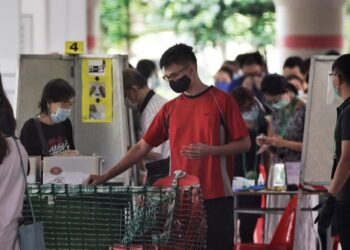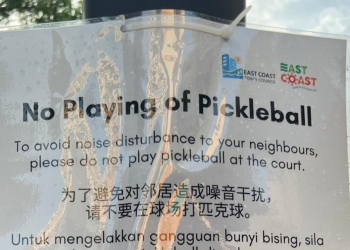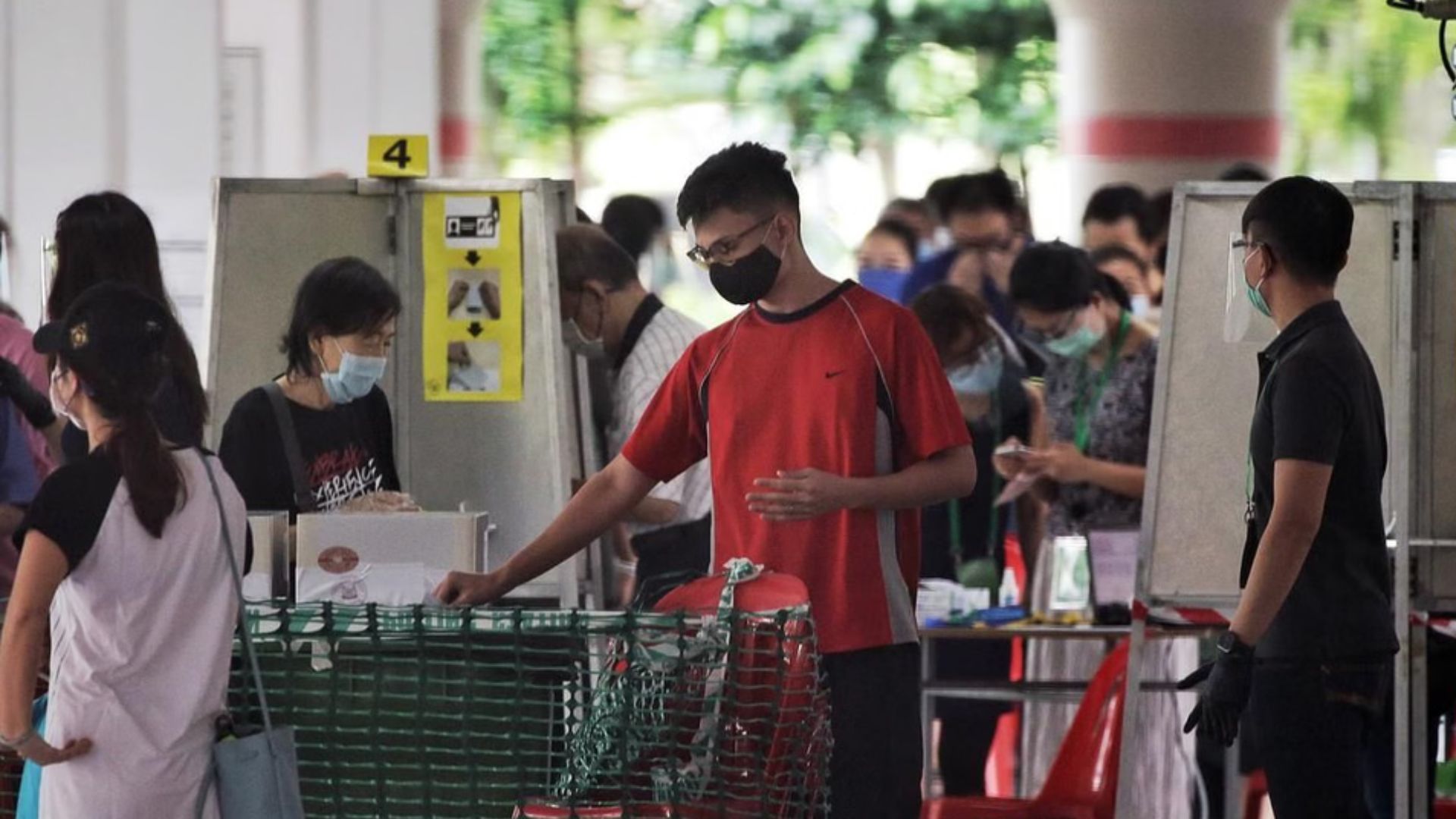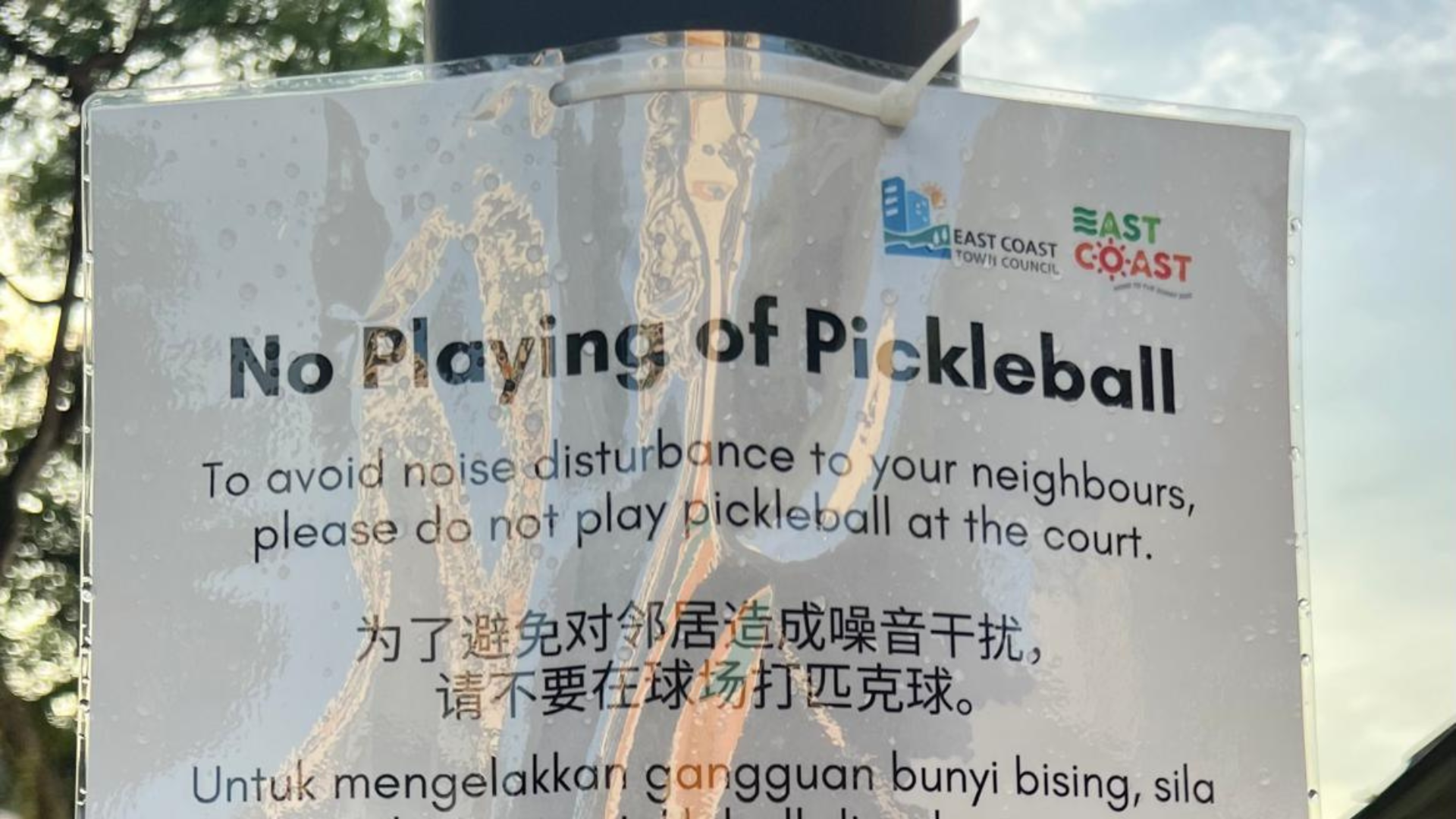Thumbing through old sepia photographs of Sin Nam Huat, a traditional provision shop nestled in the old estate of Toa Payoh North, 60-year-old Ong Kok Chee recalls some of the best times of his childhood and young adult life with the same fervour one might see in a twenty-first century ‘Bitcoin bro’.
Pointing to a photograph of a massive crowd in front of his shop in the late eighties, the elderly shop owner says, “This was when we did a live radio giveaway. Shoppers would gather in front of the shop for the ‘two thousand’ lucky draw. Everyone’s eyes were on the dozen or so prizes.”

Established in 1962, Sin Nam Huat has provided essential provisions and myriad services to residents of Toa Payoh and beyond for two generations. Among these services — long before the dawn of supermarkets and digital technology — was the promise of groceries at one’s doorstep on the same day.
This might come as a surprise to young Singaporeans today. Before the advent of online supermarkets like Redmart and economies of scale that enable the low-cost delivery models we currently enjoy, many shoppers used to carry out bi-weekly grocery run at crowded supermarkets as an inescapable part of their routine. Even few were aware of the hundreds of neighbourhood provision shops, like Sin Nam Huat, that provided delivery in the days of yore.
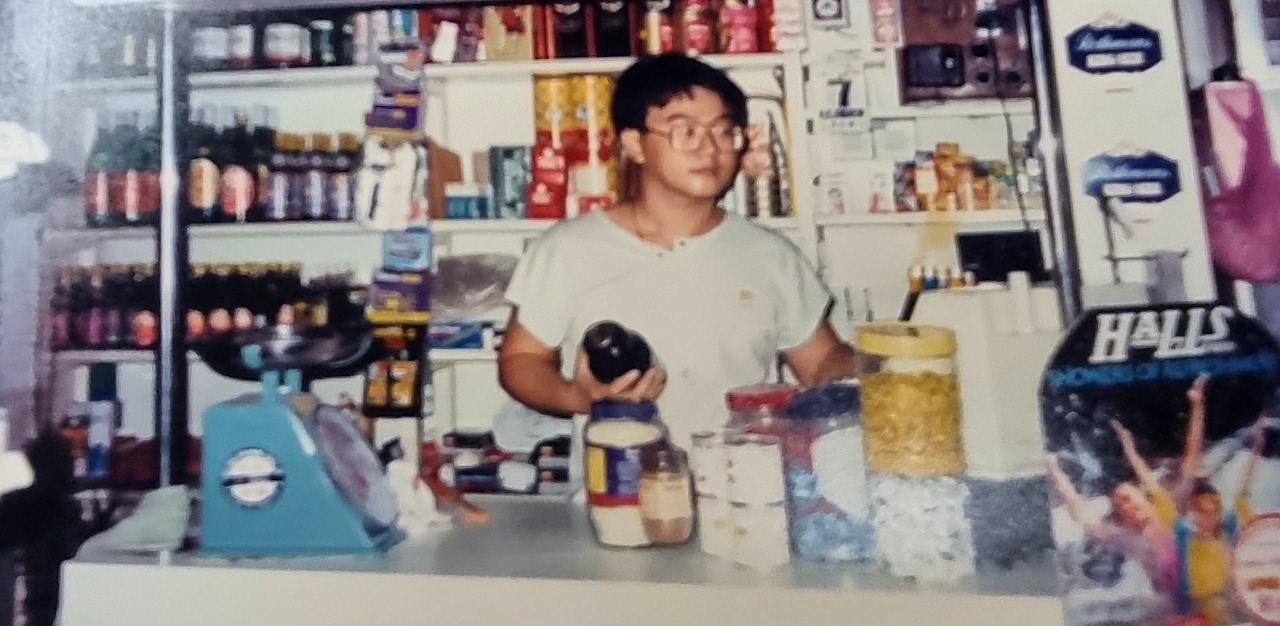
Over the decades, as the old regulars of the likes of Sin Nam Huat moved away or died and new residents rarely shop at the old grocer’s, the awareness of their existence dwindled. Mr Ong had intended to advertise his delivery service, but costs and reach are tricky to square.
In the past, a young Mr Ong would strap orders onto his blue steel bicycle and deliver them to nearby homes, and returning to the shop for more runs after. “We used to deliver on bicycles until late into the night,” Mr Ong recalls.
These days, he takes turns with his brother, driving the van to deliver groceries “as far as Bishan where loyal customers now live”.
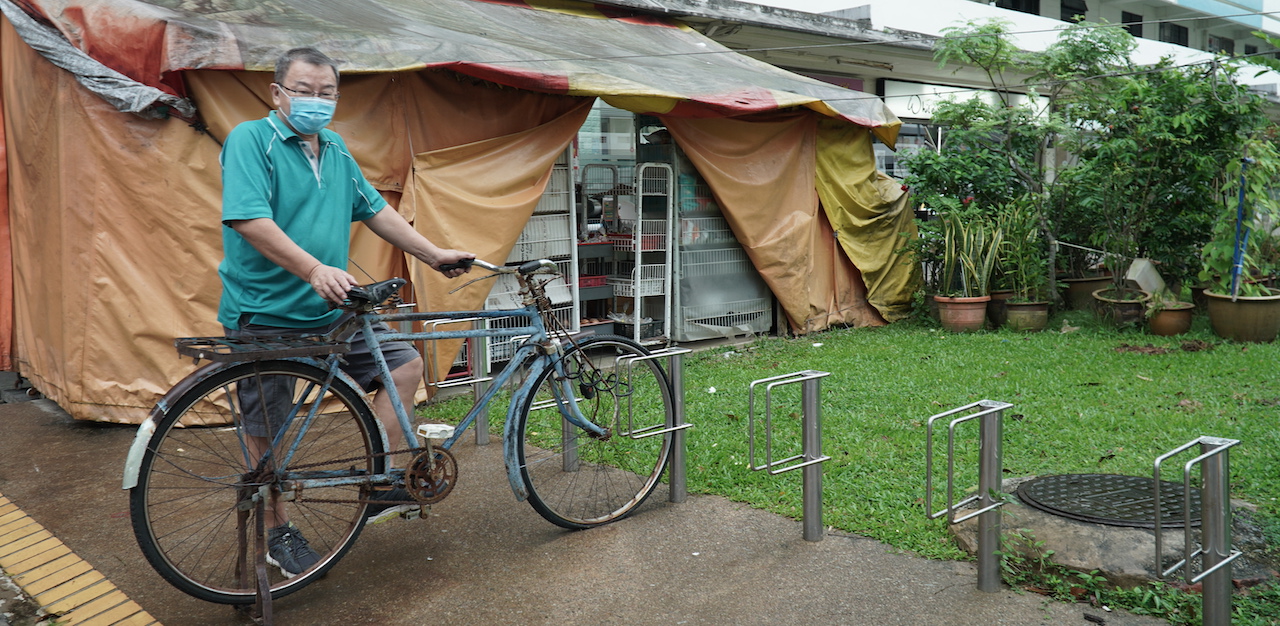
Most supermarkets, online grocers and food delivery services saw a spike of about 15 per cent in orders whenever tightened restrictions kicked in after a surge of Covid-19 cases. Some supermarkets and delivery companies even opened up more slots and ramped up manpower to cope with the increased demand.
But while requests for grocery delivery in Singapore climb from the onset of pandemic restrictions, some of the older traditional provision shops have gone against the tide and chosen to cease delivery operations.
While Mr Ong and his brother are able to run deliveries for Sin Nam Huat in their van, which doubles as their personal vehicle, the same operation cannot be replicated by a larger provision shop like Teo Chuan Kee.
Mr Teo Koon Hwee, the 73-year-old successor to his late grandfather’s provision shop, has cut out delivery services entirely — something he claims the shop has provided since the 1920s, when his grandfather first registered the business. Mr Teo says his late grandfather first put up the Teo Chuan Kee signboard and started his little shop in 1891 near the Pierce Secondary School.
“There’s no profit to be made in grocery deliveries today,” Mr Teo’s son, who co-manages Teo Chuan Kee today, tells TheHomeGround Asia.
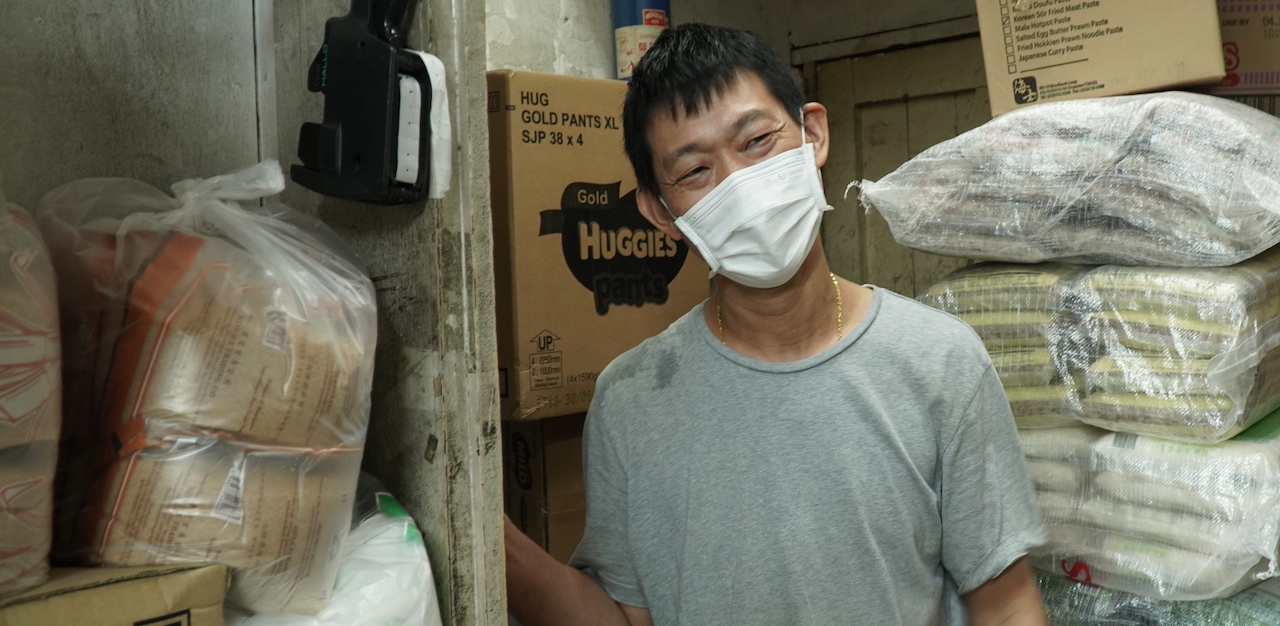
According to him, the costs associated with operating a delivery fleet makes little economic sense today. Running the team through a back-of-envelope calculation, he maintains that it would cost about $5,000 every month just to operate a single delivery van in a given region, citing the exorbitant oil price and labour costs.
“Players like Grab and Shopee don’t make money on deliveries. It’s all marketing at this stage,” he says, alluding to the startup model of delivery providers today that rely on venture capital to achieve critical mass with little concern for profit margins.
Admittedly, Mr Ong is under no illusion that going online and delivering the goods will bring in the big bucks. As labour costs are prohibitive in their line of work, the brothers keep their operation manageable between the both of them. Whenever Sin Nam Huat’s delivery volume spiked after an announcement of Covid-19 curbs, they had to cap orders to manage.
Mr Ong reveals that Sin Nam Huat’s plan to go online in early 2020 had been thwarted by the pandemic, which redirected every supermarket’s resources to its online offering.
“It’s hard to compete with them now that everyone’s focusing on ‘online’. They already had everything in place. All they needed this time is to focus their efforts and go all-out,” he says.
Pointing to growth figures he has seen online, Mr Teo believes there is little doubt that supermarkets and online grocers “have eaten into their share of the market over the years”. He says he does not believe that going online is the answer for shops like his.
“Going online is rather meaningless to us because the expenses are too high. Your business will grow but your profits won’t.”
Even in the presence of recent state initiatives that help traditional retailers go online, both Mr Teo and Mr Ong say the manpower crunch remains a fundamental obstacle for which there appears to be no solution.
Asked about the future of their shops, both owners maintain that only time will tell.
Join the conversations on TheHomeGround Asia’s Facebook and Instagram, and get the latest updates via Telegram.

